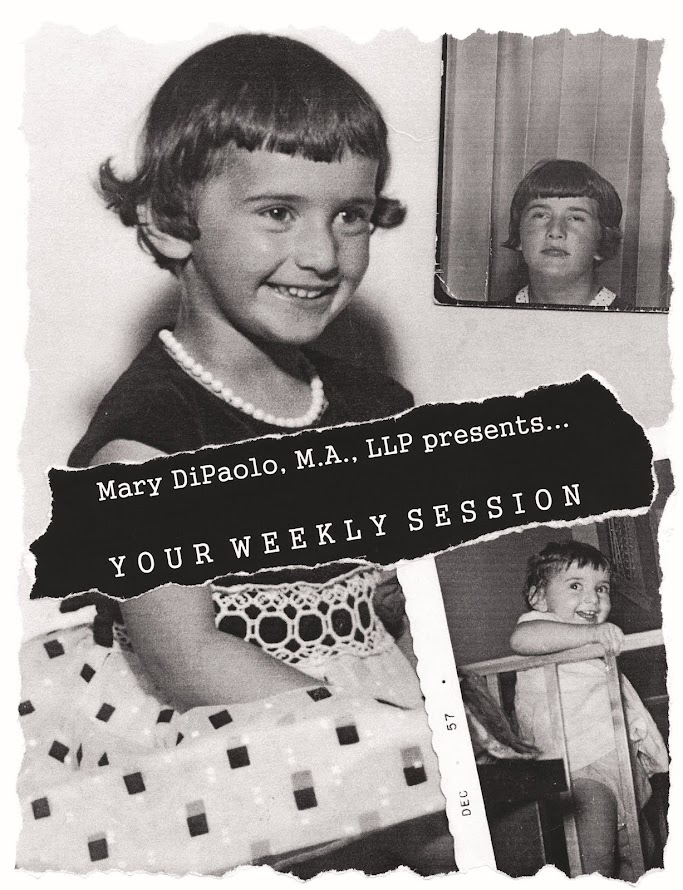Trauma bonding happens when we find other people who we feel "connected" to without fully understanding why. Instead of effectively communicating in order to understand one another from the inside out, trauma bonding teaches us that love-bombing (yes, it's a term!) is how we typically and initially bond traumatically to one another. "Oh really?! Me too!" "I feel the exact same way!" "You're my soulmate and we just met!" This love-bombing is a strategy more than it is having found "my person!" completely by happy accident. After love-bombing, for however long that lasts, the next phases involve devaluing...and then finally discarding. In other words, the pattern of Idealize-Devalue-Discard is the trauma-bonding method that creates and then destroys any trauma-bonded enough relationship between any two people or group.
Our experiences with trauma and trauma bonding teaches us how expressing "love" to others is rarely about practicing equality, mutual respect, honesty, mercy, forgiveness, and loving sacrifice. Instead, how we choose to "love" others has more to do with our own conscious or subconscious attempts at avoiding pain and getting what we want from him/her/them as often as we choose. How come? Well, because of our history with trauma and trauma bonding, that's how come.
Ultimately, we lose our empathy and compassion treating each other in this way....and we don't even notice. By the time we select our own "people" to bond with, the chains which link us together are more trauma-based in nature than they are love-based. This is how trauma and trauma-bonding germinates over time. We grow up believing we have to manage our own deep wounds and damage alone. Nobody is there for us in the ways we need him/her/them to be. As time continues to pass us by, we find ourselves feeling more "connected" and more "understood" by others who have also been dragged through the muck by their own family members, past love interests, former best friends, classmates at school, etc. Rather than challenging ourselves by becoming involved in friendships or romantic relationships that are LESS chaotic, abusive, crisis-driven, and/or unpredictable....we go the other way. We are used to it. We accept it. We trauma bond as our preferred means of developing "into-me-you-see" emotional, spiritual, and/or physical intimacy with other people. And when we do this, another whole new level of the "Trauma 2.0 Experience" repeats itself for its newest generations of humanity.
I have met a whole lot of people over the past 20 years I have been a practicing LLP psychologist. Just when I think people couldn't be any more clueless about their own familial history with trauma, trauma bonding, and current dysfunctional patterns of behavior---I meet yet another client, couple, or family who breaks new ground with their astounding levels of denial mixed in with their pride/ego and envy.
Of course, being in denial as a coping tool is easy. This is because it is easy to gloss over the impact that our trauma histories, trauma-bonded lives, and codependent lifestyle choices have had on us---and on our family system. It is much easier to say "I don't remember.." or believe "It wasn't that bad..." when we are being asked to face that which we would rather not face. Without facing what happened to you and how it affected you mentally, emotionally, spiritually, and/or physically---you'll just keep doing whatever it is you are doing without any real insight(s) attached.
If you haven't yet watched the youtube series "Soft White Underbelly", maybe this would be the right time for you to check it out. Here, individuals are interviewed about their lives which reflect the soft white underbelly of our western culture. These interviews spotlight the most vulnerable and exploited aspects of our human nature and the associated suffering that nobody wants to look at close up and personal. These folks have survived what many others do not. Interviewed by youtube series founder Mark Laita, the interviewees include prostitutes, active drug addicts, fetishists, current and ex gang members, survivors of childhood sexual abuse and incest, survivors of sex trafficking...you name it, their lives and their voices are featured here. It's a powerful means with which to break stereotypes regarding what "those" kind of people are like. They are not unlike you and me. Why? Because, just like you and me, we all have a history of trauma, trauma bonding, and certain "toxic" codependent personal relationships in common.
Trauma and trauma bonding. There is no escaping it. Unless of course, we come to learn from our mistakes so we don't keep repeating them.
Until next post....
